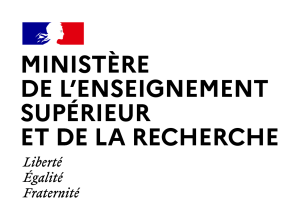This page is for completed projects. It covers projects from all platforms (HAL, Episciences and Sciencesconf).
Édisciences
Édisciences meets a need for journals in terms of editorial support. Its aim is to facilitate the editorial preparation of articles and to produce structured publications in accordance with editorial quality standards (FAIR principles).a publication de rapports de relecture ouverts.
| Funding |
National fund for open science |
 |
| Duration |
12 mois |
|
| Project kick-off |
2024 |
|
| Investment |
33 203 € |
|
| Partnership |
Association pour la Recherche en Didactique des Mathématiques (ARDM), Association Française des Instituts de transport et de logistique (AFITL), Inria for the Journal of Theoretical, Computational and Applied Mechanics (JTCAM) |
|
| Project leader |
Céline Barthonnat |
Deliverables:
- structured templates in .indd and LaTeX format;
- workflows and editorial checklists;
- directory of service providers.
HALOWIN
HALOWIN project aims to improve HAL interoperability with preprints reviewing services by developing a technical framework that enables the automatic sharing of documents, metadata and notifications. The project rests upon two services: a publishing platform (Episciences) and a recommandation platform (Peer Community In).
| Funding |
National fund for open science |
 |
| Duration |
33 months |
|
| Project kick-off |
march 2021 |
|
| Partnership |
Peer Community In |
|
| Projet leader |
Raphaël Tournoy |
OpenAIRE Nexus
| Funding |
European project, OpenAIRE-Nexus, Scholarly communication services for the EOSC (INFRAEOSC-07-2020) – Increasing the service offer of the EOSC Portal (a3) services supporting scholarly communication and open access |
| Duration |
30 months |
| Project kick-off |
January 2021 |
| Partnership |
OpenAIRE |
| Project leader |
Raphaël Tournoy |
Description
- Interconnecting Episciences with Zenodo: a researchers will be able to submit a preprint in Zenodo to an Episciences journal;
- Interfacing with other services: statistics system of OpenAIRE, OpenCitations, Scholexplorer and OpenAIRE PROVIDE;
- Making the authentification system used by EOSC available to Episciences users.
Evolution of document typology in HAL
- fulltext of scientific documents,
- easy deposit,
- interoperability.
| Project leader |
Agnès Magron |
| Participants |
Brigitte Bidegaray-Fesquet (Casuhal), Michèle Dassa (INSHS-CST Ribac), Francine Delmas (EPRIST), François Donzel (CCSD), Sandrine Mouret (ADBU), Clothilde Nicol (INRAE) |
Read the outcome of the working group
Read the working group’s report
Methodology
- Inventory of the current list of types of documents in HAL, their interoperability (with ORCID, display of the data in the triplestore)
- Census of the requests of users (support tickets, gathered by the members of the working group)
- Comparison with existing international lists (COAR, ORCID, HCERES, Zenodo)
- Formulation of a list of criteria
Planning
| Start of the work |
September 2020 |
| Presentation of the draft report |
March 2021 |
| Report open to comments |
April-May 2021 |
| Technical study (internal CCSD) |
Septembre 2021 |
| Deployment |
October 2022 |
EOSC Pillar
| Funding |
European project: “EOSC in action: Use Cases and community-driven pilots, work package WP6 de EOSC-Pillar, Task 6.5. FAIR principles in data life-cycles for Humanities” |
| Duration |
36 months |
| Project kick-off |
July 2019 |
| Partnership |
Huma-Num |
| Project leader |
Yannick Barborini |
| CCSD coordination |
Bénédicte Kuntziger |
CCSD’s part:
- Linking publications on HAL to research data in Nakala;
- Inserting data citation and their visualisation in HAL record (through Nakala player);
- Index and display the connections between the resources.
Planning
| Limited deployment of the POC |
June 2021 |
| End of POC |
December 2021 |
Documents & productions
CorHAL
| Funding |
Fond national pour la Science ouverte, allocated to INIST |
| Duration |
12 months |
| Project kick-off |
January 2021 |
| Partnership |
INIST |
| Technical project leader |
Jean-Baptiste Génicot |
| CCSD coordination |
Yannick Barborini |
| Other participants |
Bénédicte Kuntziger (CCSD); CasuHAL user group |